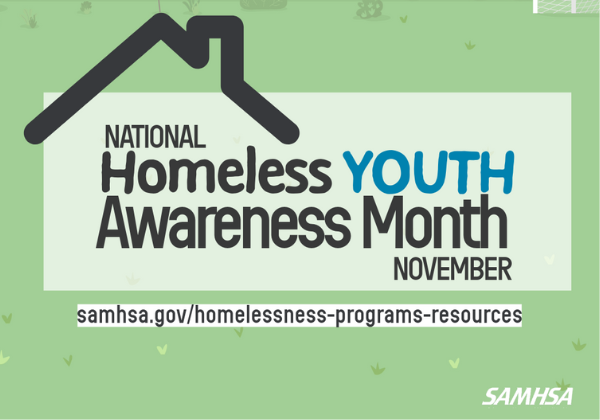The financial and technical assistance funding comes from a $2 million grant from Margaret A. Cargill Philanthropies.
New York, NY | November 20, 2024 – CSH, a national nonprofit intermediary and Community Development Financial Institution (CDFI) advancing supportive housing, has awarded a 24-month technical assistance package, including optional $100,000 grants, to housing and social service entities in Alaska, Washington, and Wisconsin. These entities and their partners will use the assistance and grants to co-design housing and service strategies with families and communities. The results will aim to reduce housing instability and child welfare involvement, particularly among American Indian and Alaska Native communities.
The awardees are Newcap in Northeast Wisconsin; Child Welfare Academy at the University of Alaska Anchorage; and the Washington State Department of Children, Youth, and Families (DCYF).
The awards are part of a CSH initiative funded by a $2 million grant from Margaret A. Cargill Philanthropies to promote cost-effective approaches to housing stability, reduce family separation, and align housing and services to transform systems. It builds on CSH’s work over the past three years with families, American Indian and Alaska Native child welfare experts, and communities in Minnesota and Washington to advance the Keeping Families Together (KFT) model.
“CSH congratulates these awardees for their commitment to keeping families intact and providing access to affordable housing and services.” said Andrew Johnson, Director of Systems Transformation, Families and Youth at CSH. “We are grateful to Margaret A. Cargill Philanthropies for their generous resources that have been crucial to our work in supporting communities and strengthening housing and services systems to assist families better.”
Over the next two years, the awardees will receive CSH’s technical assistance and optional $100,000 grants to collaborate on strategies that reduce housing instability and child welfare involvement. This includes engaging cross-system partners, developing tools to identify family housing needs, and improving child welfare and housing systems.
Drawing from the CSH KFT model and national One Roof coalition, the technical assistance will include identifying and engaging cross-system partners to collaborate as they develop and implement housing and services to support housing stability, preservation, and family reunification. Technical assistance will also help develop tools or screening methods to identify family housing needs and improve child welfare and housing systems to better serve families most impacted by child welfare and housing instability.
The initiative addresses the significant impact of housing instability on families involved in the child welfare system, building on successful efforts in Minnesota and Washington. Existing sites in these states will continue to receive support and opportunities for additional grants and technical assistance.
“We are thrilled to support these outstanding organizations in Alaska, Washington, and Wisconsin through our technical assistance and grant program. Using our KFT model and One Roof coalition, we have learned that solving housing instability and child welfare system involvement that drive high costs requires sectors and systems to co-design solutions directly with the families they serve,” said Deborah De Santis, President and CEO at CSH.
The selected awardees provided statements upon receiving news about technical assistance and optional grant awards.
“This partnership will provide a way to deepen DCYF’s work with the twenty-nine federally recognized Tribes and urban Indian populations, and to engage with young people and families more meaningfully. Working with CSH on broader implementation planning and service delivery as well as focusing on effective outreach to these specific populations will support our mission as DCYF rolls out contracted housing supportive services in counties across the state,” DCYF Housing & Homeless Prevention Administrator Cole Ketcherside said. “We are thrilled to continue working with CSH as we’ve already had success in providing housing support services in several communities currently being served.”
“We know that families below the poverty line are three times more likely to be substantiated for child maltreatment and that economic differences have fueled disproportionate child welfare system involvement among families of color; Black, Latino, and American Indian/Alaska Native (AI/AN) families are disproportionately more likely to be poor due to longstanding systemic conditions,” said Alicia Laseck, Marketing Consultant with Newcap. “With support from CSH grants, we will create community and systems partnerships and will work together to drive amplified, large scale change for Native American families.”
“This is a welcome opportunity to support at-risk families and youth by bringing together child welfare and housing systems to co-create solutions with those impacted by these systems. We look forward to leveraging the technical assistance and support to expand the state’s capacity to support families, particularly among Alaska Native youth and families,” said Amanda Metivier, Director of the Child Welfare Academy.
ABOUT ONE ROOF
One Roof is an exciting national initiative to support local communities in developing and advancing practical and policy solutions for children, youth and families caught at the intersection of child welfare involvement and housing instability/homelessness. One Roof drives change by delivering improved and integrated solutions designed to safely preserve and reunify families facing housing instability, trauma, and child welfare involvement. One Roof builds its success on community collaboration, partnerships, and by leveraging common goals between housing and child welfare agencies. With the support of One Roof, hundreds of families have received supportive housing and been more efficiently served by child welfare and community partners. Visit 1RoofFamilies.org.
Media Contact: Jesse Dean, Director, Strategic Communications | [email protected] or 347-931-0132.
###




